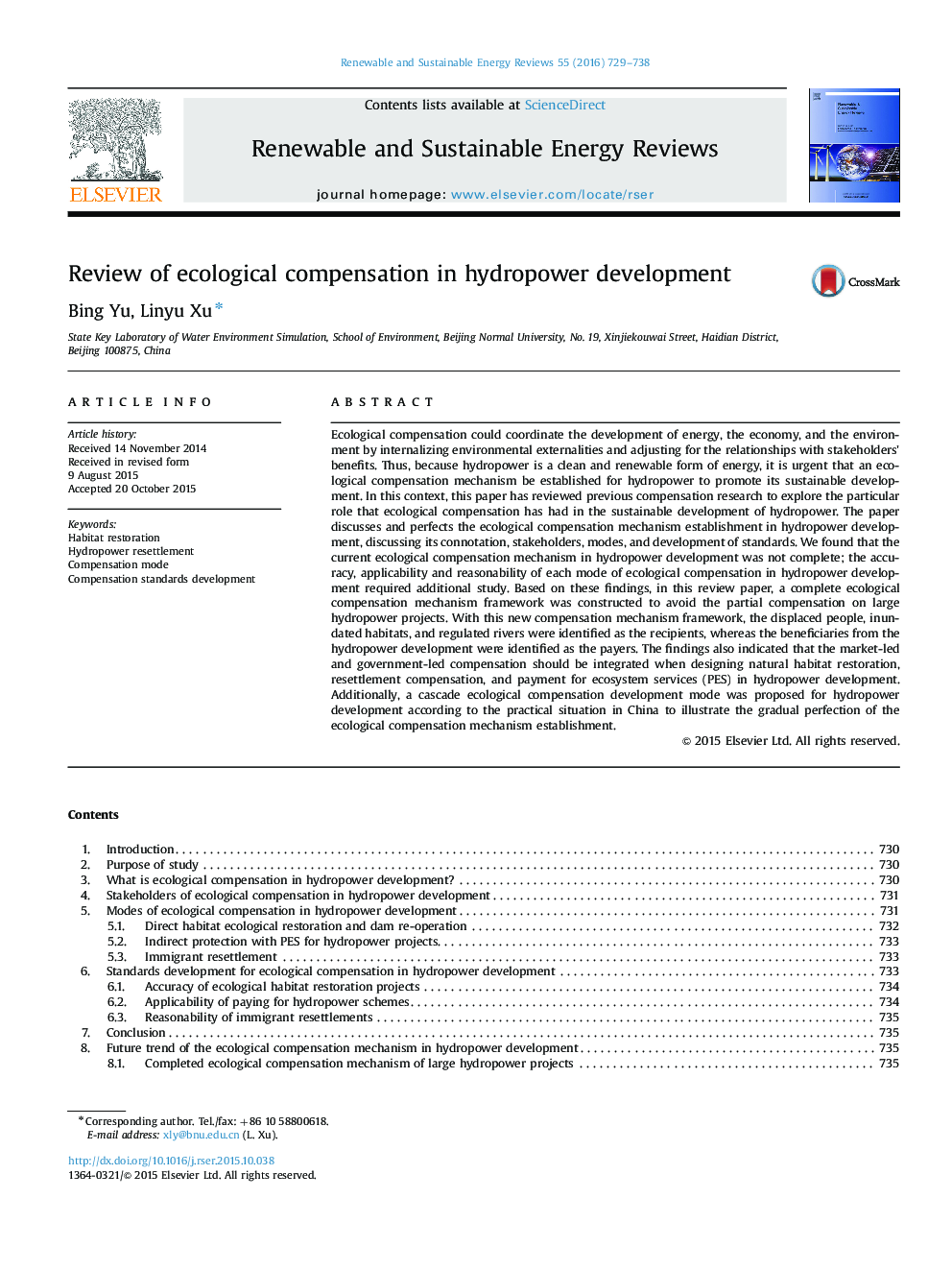| Article ID | Journal | Published Year | Pages | File Type |
|---|---|---|---|---|
| 8115354 | Renewable and Sustainable Energy Reviews | 2016 | 10 Pages |
Abstract
Ecological compensation could coordinate the development of energy, the economy, and the environment by internalizing environmental externalities and adjusting for the relationships with stakeholders׳ benefits. Thus, because hydropower is a clean and renewable form of energy, it is urgent that an ecological compensation mechanism be established for hydropower to promote its sustainable development. In this context, this paper has reviewed previous compensation research to explore the particular role that ecological compensation has had in the sustainable development of hydropower. The paper discusses and perfects the ecological compensation mechanism establishment in hydropower development, discussing its connotation, stakeholders, modes, and development of standards. We found that the current ecological compensation mechanism in hydropower development was not complete; the accuracy, applicability and reasonability of each mode of ecological compensation in hydropower development required additional study. Based on these findings, in this review paper, a complete ecological compensation mechanism framework was constructed to avoid the partial compensation on large hydropower projects. With this new compensation mechanism framework, the displaced people, inundated habitats, and regulated rivers were identified as the recipients, whereas the beneficiaries from the hydropower development were identified as the payers. The findings also indicated that the market-led and government-led compensation should be integrated when designing natural habitat restoration, resettlement compensation, and payment for ecosystem services (PES) in hydropower development. Additionally, a cascade ecological compensation development mode was proposed for hydropower development according to the practical situation in China to illustrate the gradual perfection of the ecological compensation mechanism establishment.
Keywords
Related Topics
Physical Sciences and Engineering
Energy
Renewable Energy, Sustainability and the Environment
Authors
Bing Yu, Linyu Xu,
